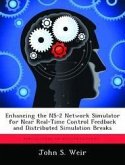Developmental feedback programs provide an opportunity to improve leadership practices by giving leaders feedback about their performance from a number of sources. This thesis expanded on Capt Doug Patton's pilot study (2002) that developed and validated an upward feedback instrument (UFI) for Aeronautical Systems Center (ASC) and Air Force Security Assistance Center (AFSAC) supervisors. Specifically, the purpose of this thesis was to develop a web-based developmental feedback collection, reporting, and analysis tool-set. The collection and reporting instrument was based on Patton's instrument (2002) and updated under an on-going study by Capt Abby White (2003). The analysis tools were loosely based on the exercises contained in the Leadership Challenge Workbook (Kouzes and Posner, 2001) as well as recommendations from other leadership scholars (e.g., Yukl, 2002). A structured approach to the information systems life cycle was used to design the web-based developmental feedback system. The result of the life cycle was a system that performed three distinctive functions: 1) on-line collection instruments for self and observer assessments, 2) automatic feedback data entry and reports for each leader and across leaders for the researcher, and 3) on-line workbook to aid leader self-analysis and development of action plans. The perceived utility of the feedback provided by the program and usability of the system were assessed. Results from the assessments were used to recommend improvements to the program.
Hinweis: Dieser Artikel kann nur an eine deutsche Lieferadresse ausgeliefert werden.
Hinweis: Dieser Artikel kann nur an eine deutsche Lieferadresse ausgeliefert werden.








